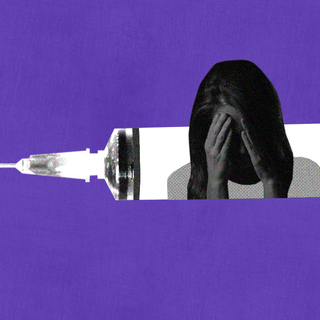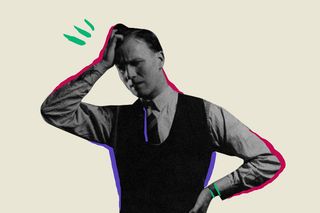
Why Living Alone, Dealing With Breakups Are Linked to Poor Health in Men
A similar link wasn’t found in women since they “have fewer health gains from being in a marriage,” argued experts.

The Casanova lifestyle — defined by serial dating and consequent break-ups, living in a “bachelor-pad“ — may have seemed “cool” in pop culture once upon a time. But a recent study has brought unpleasant news to the aspiring Barney Stinsons of the world. Turns out, breakups and isolated lives are bad for men’s health. For women, not so much, thankfully.
Published in Journal of Epidemiologyand Community Health, the findings of this study are based on the analysis of data gathered from 4,835 individuals in Denmark over a period of 26 years, from 1986 to 2011. The study’s participants were between 48 to 62 years of age.
The results indicated that the more breakups they dealt with, or the the longer they lived alone, the more inflammatory markers their blood contained.
Inflammatio refers to the body’s immune response while fighting against infections, injuries, and toxins — “in an attempt to heal itself.” Chronic inflammation, however, occurs when the body persists with this reaction — white blood cells flood the system and start damaging the arteries, organs, and joints. As such, it can lead to chronic diseases, like arthritis, asthma, cancer, diabetes, heart disease, Alzheimer’s disease, and even cancer.
To assess the degree of inflammation, if any, that the participants may be experiencing, the researchers studied the levels of Interleukin 6 (IL-6) and C-reactive protein (CRP) — molecules involved in the body’s inflammatory response — in their blood.
They found men who had experienced the most breakups — two or more, for the purpose of this study — had 17% higher levels of inflammatory markers “compared to the reference group.” Meanwhile, men who had lived alone the longest — seven years or more, in this case — had 12% higher levels of inflammation than the reference group.
Related on The Swaddle:
Marriage Is an Inherently Unfeminist Institution
“We need to consider introducing special initiatives targeted at men who suffer breakups or live alone for a period of years,” noted Professor Rikke Lund from the department of public health at the University of Copenhagen, who co-authored the study.
Women, too, were among the study’s participants, but no such link was observed in them. Evidently, breakups and living in isolation appear to have a greater impact on men’s health. “[I]t could be that women have fewer health gains from being in a marriage. If so, a breakup would cause less risk of declining health,” an article on Medical News Today states, attempting to explain the discrepancy.
In the past, too, experts have opined similarly. “Unmarried, divorced, and widowed men don’t eat as well as married men. They are less likely to exercise but are more likely to smoke, drink excessively, and engage in other risky behaviors. In contrast, married men are more likely to get regular medical care and to benefit from a higher standard of living,” an article on Harvard Health Publishing explains.
A survey of 127,545 adults in the U.S. had found married men to be healthier than those who were either never married, or who have been divorced or widowed. The former also lives longer than the latter groups do, the results indicated.
The Harvard article also notes that in terms of cancer in men, too, “[U]unmarried individuals were more likely to have advanced disease at the time of diagnosis than married persons [and] less likely to receive treatment than married patients… But even among people who received cancer therapy, [those] who have intact marriages when cancer is diagnosed have better survival than patients who are separated at the time of diagnosis.”
Related on The Swaddle:
Why Are We Still Forwarding Sexist Spouse Jokes?
The present study, however, has certain limitations: the number of women surveyed were less than half the number of men. But, past studies, too, have come to similar conclusions. For instance, a study from California surveyed 12,522 married individuals over a 14- to 23-year period, during which 3,294 women and 1,453 men were widowed. While 30% of the bereaved men succumbed too, only 15% of the women did.
Overall, for men, living without a woman results in poorer health. The Harvard experts believe it’s because “nutrition and other health habits deteriorate when men are on their own.”
Perhaps, gender roles, that assign women caregiving roles and teach men to rely on them for everything — from cooking to cleaning to providing them emotional support — may have a role to play here. If men knew how to support themselves better, could the outcome have been different? It may be difficult to predict that until we’re in a world where gender equality exists. In the meantime, it seems like patriarchy can be deadly for men, in the long term.
And therein lies an important insight for men’s right activists posting on social media under the hashtag #MarriageStrike — meant to “threaten” women by saying they’ll simply refuse to enter matrimony if their rights to rape their wives are not upheld.
Well, as an article on Irish Mirror had stated, “It’s about time women realized that men need us more than we need them.”
Devrupa Rakshit is an Associate Editor at The Swaddle. She is a lawyer by education, a poet by accident, a painter by shaukh, and autistic by birth. You can find her on Instagram @devruparakshit.
Related


Several Omega‑3 Fish Oil Supplements in the Market Are ‘Rotten,’ Find Scientists
